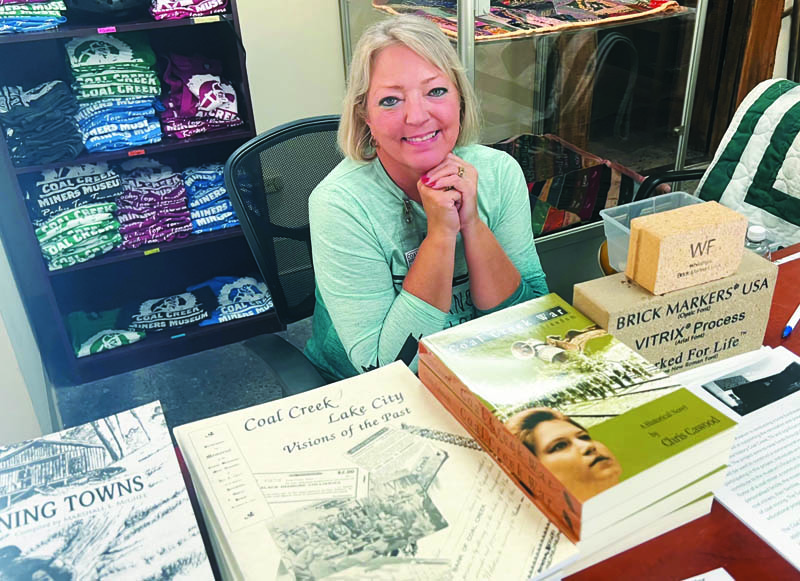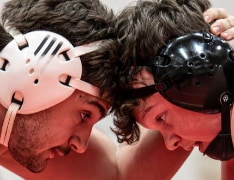Coal Creek Miners Museum gets $50k grant for expansion

Volunteer curator Lisa Pebley greets visitors to the Coal Creek Miners Museum in Rocky Top. (photo:G Chambers Williams III )
In October, the museum began a campaign selling bricks to donors to raise money for additions and improvements to the facility, including adding a second floor of exhibits.
The grant from the state, awarded through a program of the Tennessee State Museum, will allow the Miners Museum to add heating and air conditioning, along with ADA-compliant restrooms, to the second floor, according to an announcement by the state museum.
According to the announcement, “The Tennessee General Assembly made available $5 million in funding from the 2023-2024 Appropriations Act ‘for the sole purpose of providing grants to museums with a 501(c)(3) nonprofit organization or affiliated with a governmental entity for capital maintenance and improvements.’”
The notice said that the state museum received 170 applications totaling $12.5 million in requests for the $5 million that was available. There were “full or partial awards to 108 museums across the state, representing 58 counties,” the state museum said.
“The funding that will be provided through this grant will give us a jump start on remodeling the second floor of the museum,” said Tim Isbel, chairman of the Coal Creek Miners Museum’s board of directors.
“The HVAC and an ADA-compliant restroom are very important components in the remodeling project that will expand capacity, allowing us to display a more-extensive collection of artifacts and exhibits. This, in turn, enables us to offer a more comprehensive and immersive experience for visitors.”
Ashley Howell, executive director of the Tennessee State Museum, said, “There is incredible work being done throughout the state by our strong network of Tennessee museums and historic homes.
In October, the museum announced that it “aims to raise funds through the sale of personalized bricks that will be used to construct a commemorative pathway at the museum.”
Located in a former bank building next to City Hall in downtown Rocky Top, the museum is dedicated to preserving and celebrating the history of coal mining in the Coal Creek area, with emphasis on the impact on the region, and the tragedies that resulted in the deaths of hundreds of miners.
Volunteer curator Lisa Pebley said money raised by the brick campaign will go toward finishing the second floor, which will concentrate on the coal industry from the 1940s until its end in the early 2000s.
The main floor chronicles the industry’s impact from its beginning in the 1800s when Henry Howard Wiley brought Welsh miners in to start mining in the area, through the war years in the 1940s, Pebley said.
The former bank vault on the main floor tells the story of the Fraterville mine explosion on May 19, 1902, which resulted 216 deaths.
“We have already installed the elevator needed to meet ADA requirements [for the second floor},” she said. “We will open the second-floor exhibits when we get enough money to finish it.”
Bricks will be printed with information each donor provides, and cost $100, $200, or $300 each. on the size (four by eight inches, or eight by eight inches) and the amount of text the donor chooses.
The most expensive ones -- $300 – will be able to have custom logos on them, according to the campaign flyer.
“By participating in this project, individuals and organizations have the opportunity to contribute to the museum’s financial sustainability while leaving a lasting legacy in honor of a coal miner, a community member and/or a business partner,” the flyer reads.
“By selling personalized bricks, the museum aims to engage the local community, former coal miners, their families, and individuals passionate about preserving the history of coal mining.
“The funds raised will be used for museum infrastructure, exhibits, educational programs, and maintaining the museum’s collection,” it says.
No addresses, phone numbers or websites will be allowed on the bricks, and any messages proposed for the bricks must be approved by the museum.



